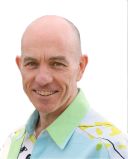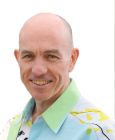Motivation
Goal Setting Is Not the Problem
Goals are key to living the life you want.
Posted April 6, 2024 Reviewed by Tyler Woods
Key points
- We are designed to achieve goals.
- Many different words are used to indicate the same goal-achieving process.
- Our lives are the goals we pursue.
- Having a goal to help others achieve their goals can help with our own goal achievement.
Recently, I saw a post on LinkedIn promoting a TED talk about setting goals. I was really interested in the headline because I’m a big fan of goals. With that in mind, you can perhaps imagine my surprise when I discovered that the TED talker took the position that goal-setting was something to be avoided. Not only that, but after about seven minutes and 45 seconds, the TED talker told the audience that “the only way to fail in life is to set a goal.”
WTF?!
To say I was amazed at this suggestion would be a severe understatement. Kind of like calling the Grand Canyon a bit of a ditch.
If I had to make a statement about goals and their importance, I would say exactly the opposite! My position is that the only way to succeed in life is to set a goal. In fact, I would go so far as to say that nothing happens in the absence of goals. Even traumas, tragedies, and mayhem are what they are only because they wreak havoc with goals.
I could push things a bit further and suggest we can’t not have goals. Even avoiding goals is a goal. We are designed as goal-achieving creatures. Goals are us.
The different views about goals that the TED talker and I have might be definitional. The TED talker defined goals as “the end towards which effort is aimed” and then went on to discuss how limiting something like “the end” is. Even if we accept this as a definition of goals, “the end” doesn’t have to mean “kaput.”
Achieving my goal of getting a Ph.D. didn’t ever feel like the end. Quite the opposite. For me, the Ph.D. signalled a whole new beginning with a much greater range of options. I felt the same way about achieving my goals of getting married and becoming a dad. Both of these events marked the beginning of wonderful new adventures.
Yet there’s absolutely no reason why “goals” have to be defined the way the TED talker said they were defined.
But the TED talker did say how he thought goals were defined and then, based on this definition, his suggestion was that, instead of setting goals, we focus on objectives because “objectives” are limitless.
Well, maybe objectives are limitless, and maybe they aren’t. A quick Google search reveals that the terms “goal” and “objective” can be considered to be very similar and, in fact, are sometimes even used interchangeably.
We could get caught up in how similar or different goals and objectives might be but surely the much more important matter is, are you living the life you want? Call the activity that fills your day whatever you like. To what extent are you doing what you want to be doing?
After listening to the TED talk, it seemed to me that we might get a lot further in being all that we want to be if we focused more on the “thing” a word depicts rather than the word itself. Do the words “goal” and “objective” describe two different “things”?
Not to me.
In fact, there’s a whole bunch of words that all signal the same process. Words like aim, dream, intent, purpose, ambition, point, desire, motive, aspiration, and mission indicate the same process described by the words “goal” and “objective.”
It’s the process that’s crucial to understand if you want contentment and well-being to be more constant features of your daily landscape. What you call that process is much less important.
The process, in this case, is the business of creating and maintaining experiences we care about. There’s an even simpler way of saying all that. Actually, one word will do. The word is “control.” Control is what every living thing does to keep itself living.

Bonsai trees control and so do pink fairy armadillos. The bonsai process is a very cool example of interacting controllers. A few years ago, I was an avid bonsaier. I’m sure I will be again. With each of my bonsais, I had a clear idea of how I wanted the miniature tree to look, and I nipped and cut leaves and branches to get the look I wanted. I used wire as well to make sure the branches grew as I wanted them to.
The reason I had to do all that artful manipulating was because the itty bitty trees were controllers, too. The trident maple and the swamp cypress forest sprouted leaves and branches according to their own design, not the ideas I had. And I had to make sure that, in all my clipping and snipping, I didn’t interfere too much with the tree’s controlling. On occasion, a branch I had been coaxing to take a particular form would actually whither and die. A couple of times, a whole tree stopped controlling and ended up as a lifeless twig.
The same process can be spotted in lots of other daily activities. Pets offer great examples. At the moment, I have several pairs of finches in cages in our house. The reason the cages are necessary is because the little feathered controllers’ ideas of where they would like to roost and spend their time are different from my ideas. I get evidence of that if I forget to pay attention when I open a cage door to top up their seed containers.
We frequently see people walking their dogs past our house. The reason that people have leashes connecting them with their dogs is because dogs are controllers, too. The paths of a dog on or off a leash are very different.
Control is all around us. Our towns and cities are the way they are because people have certain ideas, dreams, and, dare I say it, goals. These inklings produce buildings and bridges and the daily bustle of social life. Perhaps the most incredibly ironic and fabulous quirk of our goal-achieving nature is that having a goal to help others achieve their goals actually helps with our own goal satisfaction.
Understanding the beautiful, ubiquitous, natural phenomenon of control might help us all do what we do more efficiently and harmoniously.




